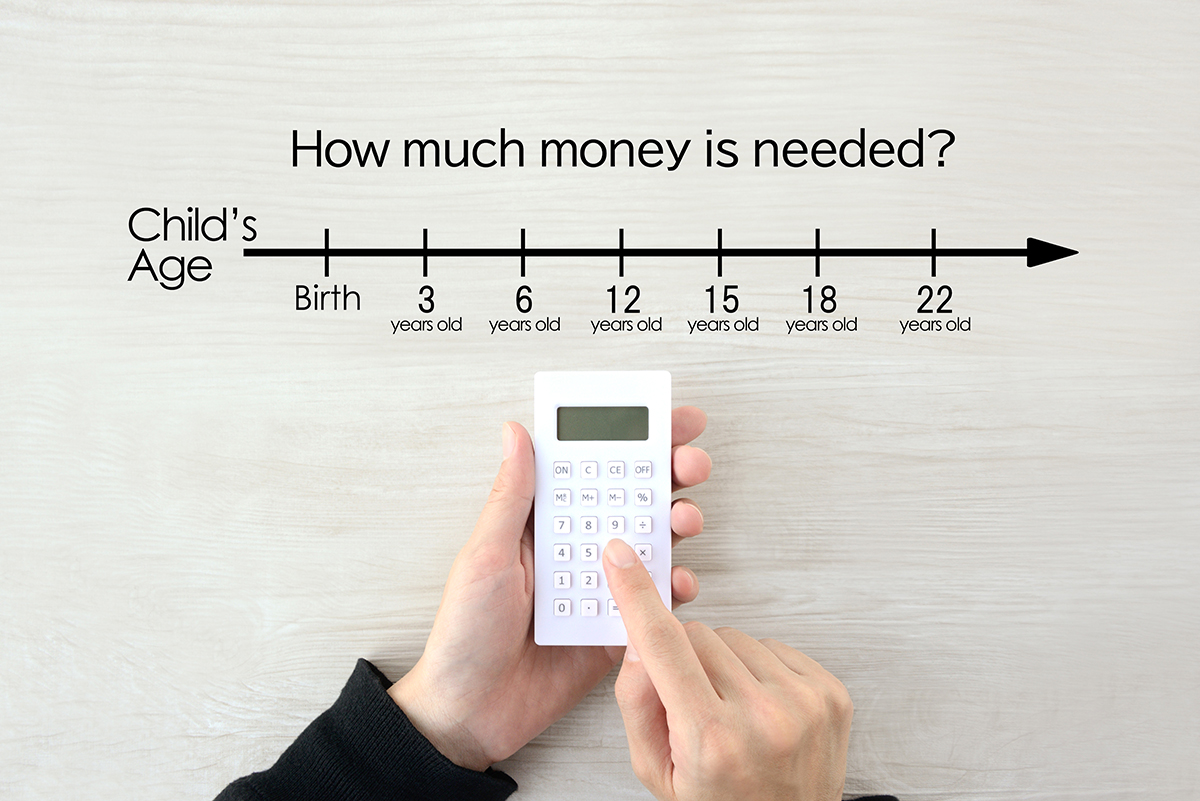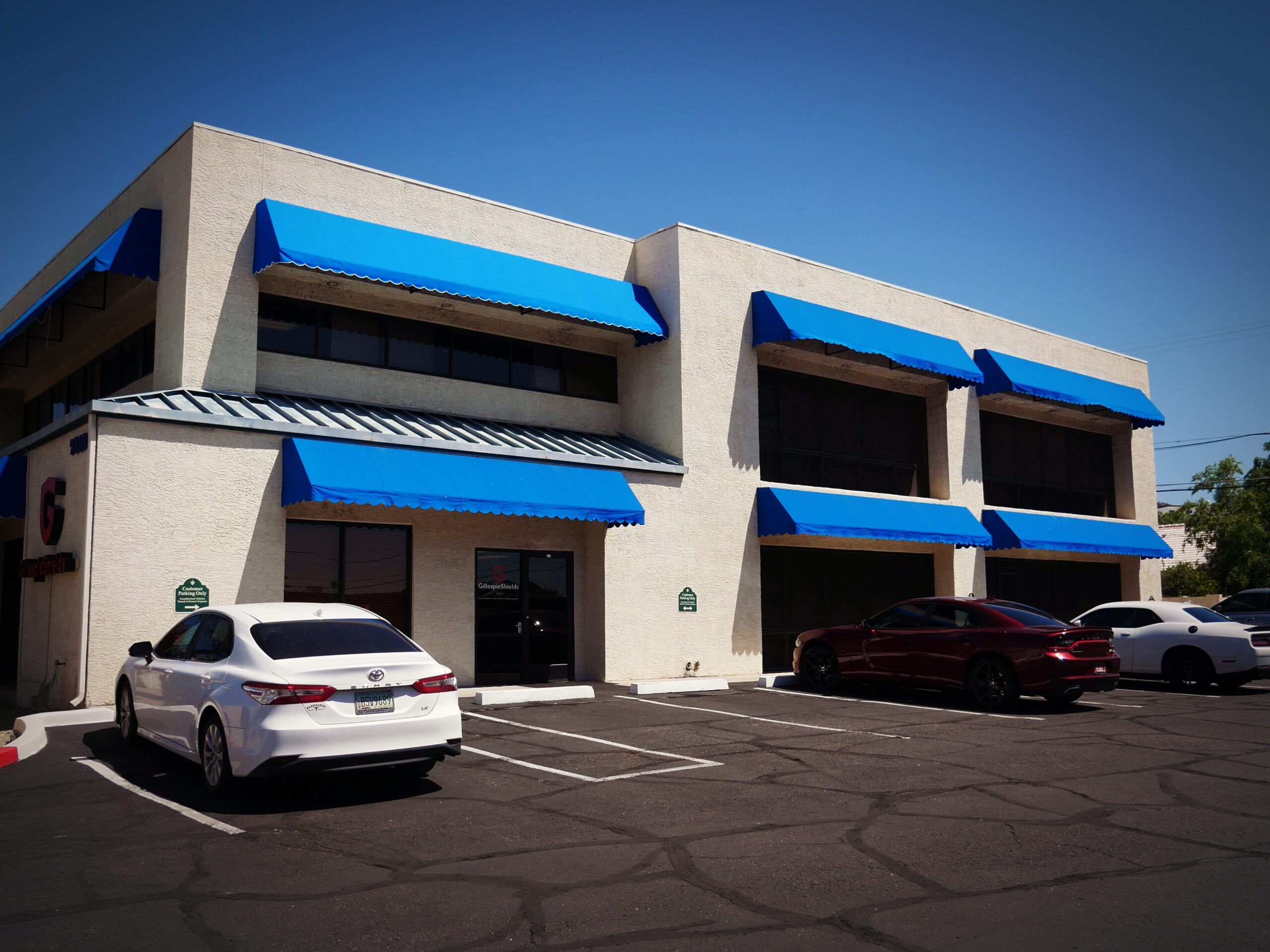
During a divorce or as part of the child reunification process, a family court judge may order child support in AZ. Knowing how to file for child support in Arizona, as well as how child support in Arizona works, is crucial for ensuring that your child receives adequate financial and material support. Arizona Family Court will not finalize a divorce or reunification proceeding until the judge is satisfied that the children in question have the resources they need from both parents to serve their best interests.
Many of our clients ask us child support in AZ questions. Here are some of the most critical.
What Is Child Support For?
The state of Arizona demands that both parents must provide the resources necessary to ensure their children’s best interests. However, the two parents may have uneven resources for the children, or one parent may provide the bulk of the tangible resources while the child remains predominantly in their care. Child support payments made from one parent to the other can ensure the financial burden is equitably shared between the parents. In addition, as the parent who spends more time parenting is often faced with extra child-rearing costs, child support is intended to balance that burden.
What Does Child Support Cover?
Child support is intended to provide for a child’s basic needs. These include food, clothing, transportation, school fees, and other basics. Child support can also be used to cover or partially cover private school tuition, daycare costs, tutoring fees, and anything else that is reasonable and necessary for the child’s upbringing.

How Do I Request Child Support?
With the help of a family law attorney, you can petition for child support through the family court system. During any divorce that involves children, the courts will require that child custody and child support matters be settled before the divorce is finalized. If you were not married to the other parent, you can apply for child support through the Arizona Department of Economic Security.
Child support can be determined once paternity has been established and while the children are under the age of 18. Establishing child support through the Arizona Department of Economic Security requires action by the petitioner (usually the parent with primary custody), who notifies the respondent that they are being petitioned to pay child support. The respondent has the opportunity to respond and challenge the child support petition. This is usually done when paternity is in question. If the respondent does not reply, a default judgment may be issued in favor of the petitioner.
There are many benefits to working with the family law attorneys at Gillespie, Shields & Taylor when seeking child support payments or requesting a child support modification.
Can I Modify Child Support Orders?
Once child support in Arizona has been set by a court order, it can be difficult to modify the order unless a significant change to the financial circumstances of either or both parents has occurred.
With the help of a family law attorney, you can demonstrate that:
- You have become ill or disabled to the point where you can no longer pay the current child support monthly payments.
- Your income has dropped due to job loss or a change in employment, so the child support should be proportionally reduced.
- The other parent who pays child support earns significantly more and should have their child support obligations revisited.
The courts will only consider alternations to child support in AZ when there has been a significant change to the income of the parent who pays child support or another significant change to the co-parenting situation that requires the courts to revisit the child support agreement.
What Happens If the Other Parent Doesn’t Pay?
Once a judge has signed a child support order, the parent who has been ordered to pay does not have the option of not meeting their obligations. Any parent who does not pay child support could face serious penalties that could include jail time. One of the most common ways to enforce child support in Arizona is by petitioning the family court. One of the first steps for a parent seeking to enforce a court order is to secure representation from an experienced family law attorney who can draft the enforcement motions and present evidence to a judge. You must

demonstrate that the other parent has the ability to pay but chooses not to. The judge will determine the best remedy. Defying child support orders can place the at-fault parent in contempt of court, which is a very serious offense. The Department of Economic Security can also take measures like garnishing the parent’s wages, seizing assets, placing a lien on the parent’s property, and more.
Who Pays for Extracurricular Activities?
When a child is very young, it can be difficult to predict the expenses associated with serving the child’s best interests as they grow older. A key variable that can impact parents of older children is the costs of extracurricular activities, which can often be prohibitive for one parent to cover alone. The courts often prefer that parents work out extracurricular activity costs between them. Maintaining open communication with the other parent is an important part of co-parenting, and sharing the cost of child-rearing outside of child support requires open conversations about the costs of those activities.
If the cost of raising a child for the primary custodian becomes financially burdensome, they can consult with an attorney to explore the options for balancing the expenses.
Do Dads Always Pay Child Support?
Arizona’s child support guidelines do not demonstrate a preference between the mother or father when it comes to setting child support orders. In fact, both parents must share the costs of raising the child proportionate to their parenting time and income. However, it is true that many child support orders do apply to fathers. This may be because mothers are more likely to seek primary custody of the child. The difference in earnings between the parents is another consideration that may lead to fathers paying child support more often than mothers.
Still, it is important to recognize that there are times when the mother is the one who pays child support. If you are a father and worry about being treated unfairly by the court, you can protect your rights by hiring an experienced family law attorney who understands the value of fathers in child-rearing.

Should You Establish Paternity or Request Child Support First?
Before requesting child support, you must establish paternity. The court must verify that the person who is obligated to pay child support is indeed the biological father of the child. This can be accomplished simply by having the father sign the birth certificate or by voluntarily signing an Acknowledgement of Paternity form by both parents.
The mother can also petition for acknowledgment of custody via Arizona Child Support Services. If the responding parent is uncooperative, the Assistant Attorney General’s Office may bring the matter before a court. Anyone who is deemed the likely father of a child must comply with the process of establishing paternity for the child.
If you are being told that you have fathered a child for whom you have not voluntarily acknowledge paternity, you have the right to establish whether or not you are the father before any child support orders can be placed. This is typically done via genetic testing.
How Is Child Support Determined?
According to Arizona child support guidelines, the total support amount should approximate what parents would have spent on their child if they were living together as a family. This shared income approach requires each parent to contribute a proportionate share of their income. Typically, the Arizona court will order the non-custodial parent to pay a percentage of their gross monthly income to the custodial parent as child support.
How Is Child Support Calculated?
The amount of child support is determined by the state child support calculator. It determines a base amount that considers various factors, including both parents’ gross incomes, the child’s medical expenses, work-related daycare expenses, extraordinary expenses, and the number of children living in the home.

The resulting amount is used as a baseline by the court to establish child support. The court may deviate from this calculated amount if necessary to avoid an inappropriate or unjust outcome in a particular case.
What Is Included in Gross Income for Child Support?
Under the Arizona Child Support Guidelines, gross income is interpreted broadly. When calculating child support in Arizona, parents must include income from a wide range of sources, such as wages, interest from stock investments, bank accounts, retirement accounts, capital gains, veterans’ benefits, prizes and awards, lottery and gambling winnings, insurance and workers’ compensation benefits, pensions, and annuities. Income from nearly any source must be included.
Can Child Support Be Determined in a Separation Agreement?
When both parents agree to a child support arrangement while creating a separation agreement, the courts will typically honor that arrangement. One way you can ensure that the agreement will be enforced is to ensure it is drafted by a family law attorney who understands the state’s guidelines for child support.
The parties may also agree to an amount exceeding the requirements of the child support guidelines. For instance, the parents might agree to additional support payments to cover expenses such as private schooling, college, vocational education, travel, or summer camp.
When the divorce is finalized, the courts may use the separation agreement as the basis for the final child support order.
Does 50-50 Custody Eliminate the Need for Child Support?
It may seem reasonable that when both parents split parenting time in half, there is no need for one parent to pay the other parent child support. However, this is not usually the case. The court will still consider the earning capacity of both parents when determining child support. Other factors beyond co-parenting arrangements are considered as well.
Does the Custodial Parent Always Receive Child Support?
The custodial parent usually receives child support, though there are rare circumstances in which the custodial parent must pay child support. Every parent must support their natural or adopted child proportionate to their financial ability and parenting time. Child support amounts are calculated to cover the child’s health, education, and maintenance needs. The courts consider both parents’ incomes, child care, and health insurance costs.
How Long Do I Have To Pay Child Support?

Arizona child support payments continue until the child reaches a critical milestone that allows for the termination of child support. For many, this means the first day the child turns 18. However, individual child support orders often include language that allows for multiple situations that could end child support beyond this age.
For example, if the court finds that the youngest child won’t finish high school by age 18, support ends on the last day of the month of graduation or the child’s 19th birthday, whichever comes first. Child support orders, which are
often included in the final divorce decree, may also stipulate that child support does not end until the child graduates from high school or at some other time.
Child support can continue into adulthood if the adult-child has a significant mental or physical disability preventing independent living. If the child develops a disability before they turn 18, the court may extend the amount of time that the parent must pay child support. The disability must be significant enough to impede the child’s ability to work and support themselves.
Court documents can be complex and difficult to understand. If you are going through a child custody case, you can rely on your family law attorney to summarize and explain the agreement’s terms before you sign.
Work With Experienced Child Support Attorneys in Phoenix

Based in Phoenix, AZ, and serving Maricopa County since 1985, Gillespie, Shields & Taylor’s attorneys specialize in family law, estate planning, business law, employment law, and catastrophic injury cases. We give special consideration to the intricate, emotionally fraught family law cases we serve, listening carefully to our clients so we can develop effective strategies to achieve their goals.
Our dedication has earned us top AVVO ratings and Martindale-Hubbell client recognition awards. At Gillespie, Shields & Taylor, we understand the stress child custody and support decisions can cause. We strive to advocate for you so that you can achieve peace of mind as you and your child approach the future.
For personalized legal counsel from an established Arizona child support attorney, schedule a consultation today.
Editor’s Note: This article was originally published April 24, 2022 and has been updated July 2, 2024.
Sources:
- Apply for Child Support | Arizona Department of Economic Security. (n.d.). Des.az.gov. Retrieved June 26, 2024, from https://des.az.gov/services/child-and-family/child-support/apply-for-child-support
- Establish Paternity | Arizona Department of Economic Security. (n.d.). Des.az.gov. Retrieved June 26, 2024, from https://des.az.gov/services/child-and-family/child-support/apply-for-child-support/establish-paternity

Founder, Owner, and Family Law Attorney
Those who know DeeAn Gillespie Strub can describe her in three words: caring, courageous, and competent. Growing up as the oldest of nine children, DeeAn quickly learned leadership and resourcefulness. With both parents as educators, she also acquired a love of learning, and from her mathematician, father learned to think analytically. Following in her parents’ footsteps, her first career step was to become a teacher. It was not long before she determined she could use her teaching skills most effectively in a different arena: the law. She wanted to make a difference for people.

